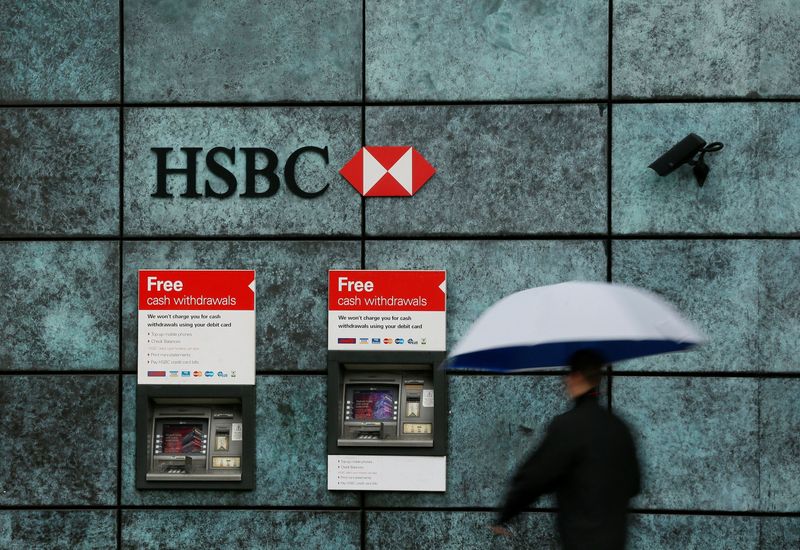By Selena Li, Engen Tham and Sumeet Chatterjee
HONG KONG/SHANGHAI (Reuters) -HSBC Holdings Plc is reviewing spending and operational controls at its Chinese digital wealth business Pinnacle, in a move that could lead to layoffs and mark an abrupt reversal of the lender’s ambition for the unit, it said different sources.
As part of the review, the lender is looking at staff salary structures and examining whether suppliers inflated expenses, contributing to a sharp spike in costs that exceeded revenues, according to five sources familiar with the matter.
The review, which has not previously been reported, began a few months ago, the sources said, requesting anonymity because the discussions are confidential. The review could lead to layoffs, two sources said.
The bank plans to complete the review by the end of this year, one of them said.
A spokesperson for the Asia-focused lender declined to comment.
A downsizing of Pinnacle, which launched in 2020 and sells insurance and fund products, would be a setback for Europe’s largest lender by assets, which has doubled its value against Asia while shedding less profitable businesses elsewhere.
Under its new CEO, Georges Elhedery, HSBC, which makes most of its revenue and profits in Asia, has tried to rein in costs, with the bank bracing for revenues to take a hit as major central banks start to lower interest rates.
HSBC has committed $6 billion to investments in Asia in 2021 – half of which was earmarked for Hong Kong and mainland China, as it looks to increase its market share in the world’s second-fastest growing wealth market.
Pinnacle, through its reliance on digital, aimed to expand the bank’s reach beyond its limited presence of physical branches in China.
Since 2020, the bank has injected $390 million into Pinnacle’s two main operating legal entities in China, a Reuters review of official company filings shows.
The division employed at least 1,700 personal wealth planners as of June, the bank said, and its workforce would grow to 1,900 by the end of 2024. HSBC originally aimed to hire 3,000 asset managers in China by 2025.
The Pinnacle review underlines the challenges HSBC faces in growing sales in China. The Greater China region, which includes Hong Kong and Taiwan, is the group’s largest revenue generator.
However, it is the only market globally where HSBC’s wealth and personal banking business, of which Pinnacle is a part, is not yet profitable. In the first half of 2024, the unit reported a loss of $46 million, compared with $90 million in the same period a year ago.
COST PROBE
The bank’s review of Pinnacle began after Ed Moncreiffe, CEO of HSBC’s global insurance business, took office in April, two sources said. He was previously head of Hong Kong and Macau at HSBC Life.
Moncreiffe did not respond to Reuter’s request for comment.
One focus of the investigation is an investigation into multiple incidents of potentially inaccurate spending made by the division, mostly involving suppliers, according to the five sources familiar with the matter.
The bank is trying to determine whether these expenses violate its internal rules, the sources said.
In one case, for example, a third-party event management company charged Pinnacle for more than 20 customer engagement and promotional events in a single day earlier this year, one of the sources said.
The investigation will also look at the compensation structure of Pinnacle’s staff, the source said. Salespeople at Pinnacle earn fixed salaries that are relatively higher than others in the industry, the source said.
That salary structure gave agents little incentive to boost sales, the source said, which weighed on Pinnacle’s revenue growth.

As part of the business review, Hong Kong-based Global Chief Distribution & Customer Officer for HSBC’s insurance business Alison Law and other group executives have been sent to mainland China to study Pinnacle’s practices and propose changes, two sources said .
Law did not respond to Reuters’ request for comment.


